|
On Friday, June 24, the news hit our feeds - the U.S. Supreme Court had overturned Roe v. Wade. So many of us were shocked, angry, frustrated, sad & grieving, and feeling very alone. I hosted a "pop-up" circle on June 26 to give us space to process, to be together, and to begin to think about strategic next steps. As with nearly all the spaces I facilitate, we shared poetry. These are the 2 poems I brought to our group space, as well as one contributed by an attendee. Let's continue to take care of ourselves and each other. Let's continue to read poetry to each other, to make art, to raise our babies to be disruptors and agitators, and continue to RESIST. Feel free to share your favorite poems of resistance in the comments. Good Bones |
| Life is short, though I keep this from my children. Life is short, and I’ve shortened mine in a thousand delicious, ill-advised ways, a thousand deliciously ill-advised ways I’ll keep from my children. The world is at least fifty percent terrible, and that’s a conservative estimate, though I keep this from my children. For every bird there is a stone thrown at a bird. For every loved child, a child broken, bagged, sunk in a lake. Life is short and the world is at least half terrible, and for every kind stranger, there is one who would break you, though I keep this from my children. I am trying to sell them the world. Any decent realtor, walking you through a real shithole, chirps on about good bones: This place could be beautiful, right? You could make this place beautiful. |
In Any Event
by Dorianne Laux
If we are fractured
we are fractured
like stars
bred to shine
in every direction,
through any dimension,
billions of years
since and hence.
I shall not lament
the human, not yet.
There is something
more to come, our hearts
a gold mine
not yet plumbed,
an uncharted sea.
Nothing is gone forever.
If we came from dust
and will return to dust
then we can find our way
into anything.
What we are capable of
is not yet known,
and I praise us now,
in advance.
we are fractured
like stars
bred to shine
in every direction,
through any dimension,
billions of years
since and hence.
I shall not lament
the human, not yet.
There is something
more to come, our hearts
a gold mine
not yet plumbed,
an uncharted sea.
Nothing is gone forever.
If we came from dust
and will return to dust
then we can find our way
into anything.
What we are capable of
is not yet known,
and I praise us now,
in advance.
| For more poetry to lift your spirits, check out this collection of Poems of Hope & Resilience from The Poetry Foundation. | What Do We Do - Now |
0 Comments
| This series of guest interviews is part of the Practicing Together project - a 6 month exploration of the 5 Practices framework that I use in my Seeds of Connection groups. Each guest was invited to choose 5 questions from a list of over 60 questions that were based on the different practices. The questions are being posted over the next many months on my Instagram feed - follow along and answer them for yourself, and see how others in the community are reflecting on these topics. A new guest interview will be posted to this blog every Friday from June through November 2022. Read more about the Practicing Together project and join us for the monthly Community Calls for deeper exploration! |
Today's Guest Interview is with Kate Holly. We met through a course we both were taking with Kelly Diels. When Kate offered input during a conversation in a virtual class, I was struck by her curious, vulnerable, and thoughtful approach to the topics we were discussing (feminist values in social media marketing). She is still a new person in my circle, and as I get to know her, I can really see how much her values are embedded in her work, her podcast, and her life as a whole. I so enjoyed reading Kate's thoughts and learning more about her through her answers to these questions. She picked some good ones! I appreciate someone willing to jump right in to the deep end, and I hope you too will appreciate her thoughtful answers to these questions.
Leave a comment and share your thoughts, or share YOUR answers to these questions.
Leave a comment and share your thoughts, or share YOUR answers to these questions.
Finish this sentence: I want to live in a world where…..?
I want to live in a world where we use our shared resources to create a thriving quality of life for everyone, where production never outpaces or ignores what is sustainable for our climate and ecosystem, where we value each other’s diversity and unique perspectives and gifts, where CARE is valued, where together we solve problems from the brilliant part of our brains instead of running from problems with the most fearful part of our brains.
What are your personal practices or beliefs around things like decolonization or divesting from capitalism?
I love this question! This truly is a practice, and one that will never be finished. Here are a few indicators for me:
What is your relationship to perfectionism like?
I didn’t used to think I was a perfectionist, because I don’t tend to be uptight about small details. However, over the years I have come to terms with an extreme perfectionism in me that really wants to have a “right way” of doing everything, and wants to “be right” with every move. This becomes particularly challenging for me with politics and ethics, which are fundamentally complicated and sloppy and non-binary, and it also becomes challenging when self-expression is involved, because I always want to present myself as good and right and perfect, and it turns out this is impossible. I have been working for years on discerning where I have a high standard for myself and others in a way that is positive and supportive of growth, and where I am being unnecessarily perfectionistic and unrealistic with my expectations. I have come to think of perfectionism as “getting the mask right”. As someone who learned late in life that I am neurodiverse (ADHD), I had to come to terms with the fact that I had been performing perfection because I was so terrified of anyone seeing what a disorganized mess I actually feel like I am so much of the time. Self-love has been the biggest practice in releasing perfectionism for me, along with becoming a life coach. As a coach, I have had the incredible privilege of learning how much of this conditioning is universal and damaging to all of us, and as I recognize these universal threads I am able to be more gentle with myself when they come up.
What do you see as the cause(s) of disconnection in our lives?
I think the primary cause of disconnection is the culture of individualism and privatization that stems from colonization, white supremacy, patriarchy and late stage capitalism.
I know so many people who have the same dream: to live on land somewhere beautiful where they can connect to nature, to create a retreat center where they can bring together community and host events and eat communally, some version of this. It’s interesting that the best dream we can create in an individualist culture is one where we privately own a bunch of acreage and have a capitalist venture like a wedding retreat venue. There is nothing at all wrong with this, but the fact that SO MANY people I know have the same dream shows me that we are missing some of the same fundamental things from our lives. We have more “wealth” than ever in private property, but less wealth than ever in community, quality of life, health and happiness. It is tragic to watch us keep reinvesting in the idea that more privatization is going to solve this problem, when it’s clear that privatization created the problem to begin with.
Do/have you worked with a coach or therapist? What makes this work meaningful to you?
I have worked with a variety of coaches over the past 6 years. For me, coaching is one of the most impactful tools I have encountered, which is why I ultimately became a coach myself. Coaching completely liberated my brain from limiting beliefs that I previously thought were just “how things are”. My first encounters with coaching changed my perspective deeply, allowing me to release judgement towards myself and others, shift my relationship to money, free myself from the dread of scarcity thinking, and take meaningful action on my goals. I have always been naturally optimistic and believed that people can change in any way they set their mind to, but it wasn’t until I encountered coaching that I had the tools to back up this perspective.
I want to live in a world where we use our shared resources to create a thriving quality of life for everyone, where production never outpaces or ignores what is sustainable for our climate and ecosystem, where we value each other’s diversity and unique perspectives and gifts, where CARE is valued, where together we solve problems from the brilliant part of our brains instead of running from problems with the most fearful part of our brains.
What are your personal practices or beliefs around things like decolonization or divesting from capitalism?
I love this question! This truly is a practice, and one that will never be finished. Here are a few indicators for me:
- From connecting my worth to my income >>> To valuing myself inherently and without the need for external validation.
- From valuing others based on a hierarchy imposed by capitalism >>> To valuing others inherently without placing them on a hierarchy.
- From “harder faster stronger” mentality >>> To gentleness, presence, and a balance of ease and effort.
- From seeing our ecosystem and wildlife as something to be controlled and possessed >>>To seeing our ecosystem and wildlife as something to be experienced and nurtured.
- From seeing my body as an object >>> To awakening the consciousness and wisdom within my body.
- From a homogenous value system that reveres a “right way” of doing things >>> To curiosity, creativity and active listening that allows me to learn about the many beautiful and diverse ways that people think and operate.
- From waiting for permission to speak and take up space >>>> To boldly sharing my voice and vision with the world because there is value in my perspective.
- From believing the scarcity myth that tells me I have no choices >>> To seeing the resources and choices that are available to me when I think outside the box.
- I feel myself divest in every moment when I pause and give in to desire and gentleness and playfulness and love.
- I feel myself divest when I look at the systems and think about greater possibilities and pay attention to what is happening politically and get engaged.
- I feel myself divest when I learn how to create a justice-oriented business that does things a different way, and when I can support other historically marginalized folks build successful businesses that are rooted in justice.
What is your relationship to perfectionism like?
I didn’t used to think I was a perfectionist, because I don’t tend to be uptight about small details. However, over the years I have come to terms with an extreme perfectionism in me that really wants to have a “right way” of doing everything, and wants to “be right” with every move. This becomes particularly challenging for me with politics and ethics, which are fundamentally complicated and sloppy and non-binary, and it also becomes challenging when self-expression is involved, because I always want to present myself as good and right and perfect, and it turns out this is impossible. I have been working for years on discerning where I have a high standard for myself and others in a way that is positive and supportive of growth, and where I am being unnecessarily perfectionistic and unrealistic with my expectations. I have come to think of perfectionism as “getting the mask right”. As someone who learned late in life that I am neurodiverse (ADHD), I had to come to terms with the fact that I had been performing perfection because I was so terrified of anyone seeing what a disorganized mess I actually feel like I am so much of the time. Self-love has been the biggest practice in releasing perfectionism for me, along with becoming a life coach. As a coach, I have had the incredible privilege of learning how much of this conditioning is universal and damaging to all of us, and as I recognize these universal threads I am able to be more gentle with myself when they come up.
What do you see as the cause(s) of disconnection in our lives?
I think the primary cause of disconnection is the culture of individualism and privatization that stems from colonization, white supremacy, patriarchy and late stage capitalism.
I know so many people who have the same dream: to live on land somewhere beautiful where they can connect to nature, to create a retreat center where they can bring together community and host events and eat communally, some version of this. It’s interesting that the best dream we can create in an individualist culture is one where we privately own a bunch of acreage and have a capitalist venture like a wedding retreat venue. There is nothing at all wrong with this, but the fact that SO MANY people I know have the same dream shows me that we are missing some of the same fundamental things from our lives. We have more “wealth” than ever in private property, but less wealth than ever in community, quality of life, health and happiness. It is tragic to watch us keep reinvesting in the idea that more privatization is going to solve this problem, when it’s clear that privatization created the problem to begin with.
Do/have you worked with a coach or therapist? What makes this work meaningful to you?
I have worked with a variety of coaches over the past 6 years. For me, coaching is one of the most impactful tools I have encountered, which is why I ultimately became a coach myself. Coaching completely liberated my brain from limiting beliefs that I previously thought were just “how things are”. My first encounters with coaching changed my perspective deeply, allowing me to release judgement towards myself and others, shift my relationship to money, free myself from the dread of scarcity thinking, and take meaningful action on my goals. I have always been naturally optimistic and believed that people can change in any way they set their mind to, but it wasn’t until I encountered coaching that I had the tools to back up this perspective.
BIO
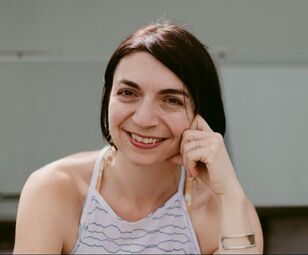
Kate Holly is a coach, facilitator and educator for creative entrepreneurs, healers and thought leaders who are building sustainable businesses that model the world they want to live in. She is the host of “The Space Beyond Scarce” podcast, which explores how we can create more justice and prosperity by overcoming the scarcity mindset.
She helps her students and clients to cultivate self-love, discover and live from their unique brilliance, and build the dreams that they are meant for. You can find her writings, workshops, training programs and coaching opportunities at www.kateholly.com. Connect with Kate on Instagram @katesandersonholly.
She helps her students and clients to cultivate self-love, discover and live from their unique brilliance, and build the dreams that they are meant for. You can find her writings, workshops, training programs and coaching opportunities at www.kateholly.com. Connect with Kate on Instagram @katesandersonholly.
| This series of guest interviews is part of the Practicing Together project - a 6 month exploration of the 5 Practices framework that I use in my Seeds of Connection groups. Each guest was invited to choose 5 questions from a list of over 60 questions that were based on the different practices. The questions are being posted over the next many months on my Instagram feed - follow along and answer them for yourself, and see how others in the community are reflecting on these topics. A new guest interview will be posted to this blog every Friday from June through November 2022. Read more about the Practicing Together project and join us for the monthly Community Calls for deeper exploration! |
Today's Guest Interview is with Tracy Bates. I connected with Tracy at the beginning of this year when I was looking for a Virtual Assistant to help me organize things behind the scenes and streamline some of the more boring bits of running a biz. Not only did she get things in shape for me, I *enjoyed* the process! She is such a fun and positive person, the process of organizing all the "boring bits" was NEVER boring! As I read through her answers in this interview, I found myself noticing that Tracy seems to do a great job of taking care of *herself*, and I'm curious if maybe that's part of what makes her so great at taking care of and helping others? Let me know what you think!
Leave a comment and share your thoughts, or share YOUR answers to these questions.
Leave a comment and share your thoughts, or share YOUR answers to these questions.
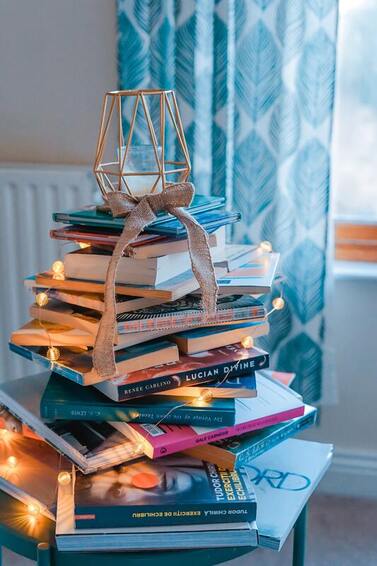
If you are familiar with the framework and resonate with the concept of “love languages”, how do you most like to give and receive love?
It actually varies who I am receiving it from! From my partner, close friends, and family members, I enjoy physical touch, hugs, holding hands, little rubs on the shoulder, a reassuring pat on the back, etc. Acts of service are my favorite way to give and receive with others, I have always found it easier for me to do something versus saying something, especially if I am not super close with someone just yet. I dabble in all the love languages though and don't "dislike" any of them.
What are some of your favorite ways to fill your cup, recharge your batteries, or take care of yourself?
Reading has always been important to me and I am so privileged to have had access to so many books throughout my life. I truly fell in love with reading in 4th grade and learned to let books take me on many adventures to different worlds, and also to learn about different perspectives from non-fiction. I have also recently fallen in love with meditation, I had tried it in the past many times but couldn't get it to stick. Ever since the beginning of my journey with therapy, I found that meditation is a great way for me to decompress on my own and that I don't have to be perfect at it to practice it.
Do you have any practices you use for self-reflection or self-inquiry?
Meditation, therapy, and cleaning! Ever since the pandemic started I found myself struggling more and more to feel grateful for anything. I felt the pressure to stay on top of all of the news and was constantly doom scrolling to "educate" myself. I had struggled with anxiety before the pandemic, but feeling isolated really exacerbated everything going on and I knew I had to change my habits. I started practicing meditation daily with the Insight app which has been a lifesaver and truly helps me feel realigned daily. I had always considered therapy, but honestly never felt "bad enough" which was a terrible mindset that I had! Everyone deserves to have access to therapy, and you can feel totally fine and still benefit from it. Therapy has helped me learn how to self-reflect on certain situations and learn from them versus just feeling overwhelmed by them constantly. And cleaning might not seem like a time for self-reflection for everyone, but it is a time when I get to be by myself and do something for myself. I enjoy the whole process of organizing, decluttering, and rearranging things in my physical world because it helps me reflect on how I feel in my internal world. If I am ever feeling down internally I can help myself by changing the way my physical world is feeling.
Are you a good listener? How does listening factor into your work?
Listening is a huge practice in my life. I remember reading a book that said while someone is talking you shouldn't be formulating your response. And that left a huge mark on me because I had never thought that way, I was always thinking about what was I going to say next or how would I relate to that part of their story, versus fully listening to them. I know that I haven't always been perfect at it, but that is why it's a practice! Listening is essential to my work, I learn all about the person I am working with and what their successes and struggles are in their business and then we work on ways to improve their life. I wouldn't be able to do my job if I didn't listen to people and their stories, because every person I work with is so unique.
Do/have you worked with a coach or therapist? What makes this work meaningful to you?
Both!! I started working with a coach for the first time in 2021 because I had started my business earlier in the year and felt like I was in a rut. Going from working in a classic career to having your own business is a huge mindset and lifestyle change. Having a coach has been so meaningful because she helps hold me accountable for my goals and what we have discussed. She often gives me ideas from a perspective that I would have never thought of and has insights into things that I have not experienced. At the beginning of 2022, I started seeing a therapist virtually and she too has helped me see things from a different perspective and hold me accountable. Both my therapist and coach are amazing and empowering women who have helped uplift me and think outside of the box. By having people in my life who have outside perspectives and different experiences than me I have been able to look outside myself for help, which hasn't always been easy! But honestly, this pandemic and starting my own business have made me realize even more how important it is to have that community of support and variety in my life.
It actually varies who I am receiving it from! From my partner, close friends, and family members, I enjoy physical touch, hugs, holding hands, little rubs on the shoulder, a reassuring pat on the back, etc. Acts of service are my favorite way to give and receive with others, I have always found it easier for me to do something versus saying something, especially if I am not super close with someone just yet. I dabble in all the love languages though and don't "dislike" any of them.
What are some of your favorite ways to fill your cup, recharge your batteries, or take care of yourself?
Reading has always been important to me and I am so privileged to have had access to so many books throughout my life. I truly fell in love with reading in 4th grade and learned to let books take me on many adventures to different worlds, and also to learn about different perspectives from non-fiction. I have also recently fallen in love with meditation, I had tried it in the past many times but couldn't get it to stick. Ever since the beginning of my journey with therapy, I found that meditation is a great way for me to decompress on my own and that I don't have to be perfect at it to practice it.
Do you have any practices you use for self-reflection or self-inquiry?
Meditation, therapy, and cleaning! Ever since the pandemic started I found myself struggling more and more to feel grateful for anything. I felt the pressure to stay on top of all of the news and was constantly doom scrolling to "educate" myself. I had struggled with anxiety before the pandemic, but feeling isolated really exacerbated everything going on and I knew I had to change my habits. I started practicing meditation daily with the Insight app which has been a lifesaver and truly helps me feel realigned daily. I had always considered therapy, but honestly never felt "bad enough" which was a terrible mindset that I had! Everyone deserves to have access to therapy, and you can feel totally fine and still benefit from it. Therapy has helped me learn how to self-reflect on certain situations and learn from them versus just feeling overwhelmed by them constantly. And cleaning might not seem like a time for self-reflection for everyone, but it is a time when I get to be by myself and do something for myself. I enjoy the whole process of organizing, decluttering, and rearranging things in my physical world because it helps me reflect on how I feel in my internal world. If I am ever feeling down internally I can help myself by changing the way my physical world is feeling.
Are you a good listener? How does listening factor into your work?
Listening is a huge practice in my life. I remember reading a book that said while someone is talking you shouldn't be formulating your response. And that left a huge mark on me because I had never thought that way, I was always thinking about what was I going to say next or how would I relate to that part of their story, versus fully listening to them. I know that I haven't always been perfect at it, but that is why it's a practice! Listening is essential to my work, I learn all about the person I am working with and what their successes and struggles are in their business and then we work on ways to improve their life. I wouldn't be able to do my job if I didn't listen to people and their stories, because every person I work with is so unique.
Do/have you worked with a coach or therapist? What makes this work meaningful to you?
Both!! I started working with a coach for the first time in 2021 because I had started my business earlier in the year and felt like I was in a rut. Going from working in a classic career to having your own business is a huge mindset and lifestyle change. Having a coach has been so meaningful because she helps hold me accountable for my goals and what we have discussed. She often gives me ideas from a perspective that I would have never thought of and has insights into things that I have not experienced. At the beginning of 2022, I started seeing a therapist virtually and she too has helped me see things from a different perspective and hold me accountable. Both my therapist and coach are amazing and empowering women who have helped uplift me and think outside of the box. By having people in my life who have outside perspectives and different experiences than me I have been able to look outside myself for help, which hasn't always been easy! But honestly, this pandemic and starting my own business have made me realize even more how important it is to have that community of support and variety in my life.
BIO
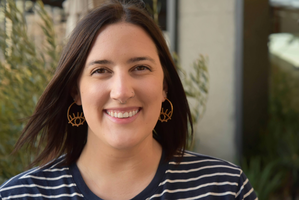
Tracy Bates (she/her) is a Virtual Assistant and Certified Dubsado Specialist. She enjoys helping people automate and streamline their business processes so that they can focus on the fun parts of their business instead of the nitty-gritty details. Tracy lives in Austin, Texas with her partner and 3 pups. Tracy loves to read, lounge in a pool, and drink tea while playing Animal Crossing. Tracy agreed to take part in the Practicing Together project because she loves being part of a community that helps each other grow, and enjoys connecting with people she may have never met. Her favorite way to get creative is painting, doodling, and gardening. You can connect with Tracy and learn more about her work at tracytheva.com or on Instagram @tracytheva.
| This series of guest interviews is part of the Practicing Together project - a 6 month exploration of the 5 Practices framework that I use in my Seeds of Connection groups. Each guest was invited to choose 5 questions from a list of over 60 questions that were based on the different practices. The questions are being posted over the next many months on my Instagram feed - follow along and answer them for yourself, and see how others in the community are reflecting on these topics. A new guest interview will be posted to this blog every Friday from June through November 2022. Read more about the Practicing Together project and join us for the monthly Community Calls for deeper exploration! |
Today's Guest Interview is with Joy MacTavish, a person who knows more about babies and milk making than anyone I've met! I've known Joy for quite some time through my work as a birth doula in the Seattle area, and later through our local homeschooling community. Joy's care for the parents she works with is so genuine and lovely. She is truly just a positive, kind, and upbeat person and honestly, a literal *joy* to spend time with! She shares vulnerably here about birth and death, her sweet Nana, and so much more. I think you will enjoy reading about Joy's relationship to play, perfectionism, and grief.
Leave a comment and share your thoughts, or share your answers to the questions Joy chose.
Leave a comment and share your thoughts, or share your answers to the questions Joy chose.
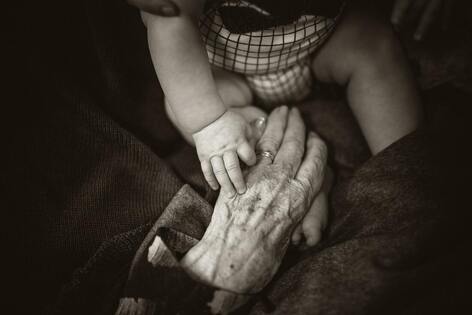
What are some things you have done in your life that you are truly proud of?
Two things that I have done in my life that I am truly proud of include both ends of the life span. From 2007-2013, I was a birth doula and attended many births during that time. In 2013 and 2019, I birthed two of my own babies in amazing and empowering homebirths. Birth, however it unfolds, is a time of immense fortitude, transformation, and hope for the future. The process often requires the birth giver (and their support people), to look inward, to evaluate, and journey through doubts, before coming out the other side and being forever postpartum, forever changed.
On the other end of the life span, I experienced being with my nana, my maternal grandmother, during her death. I was extremely close to her all my life. She helped raise me and was always an anchor for me. She taught me resilience through stories of immigrating to the U.S., having four kids in five years, and then becoming a widow suddenly while her children were still young. While I never met my late grandfather, she told me stories about him and their love, and how much they both valued education. That foundation is one of the main reasons I have two bachelors and a masters degree. She was always so encouraging about my studies and I knew how proud she was of me and who I became. Last year, she had a fall and died suddenly, but I will be eternally grateful to have had the honor of being with her in the hours before and while she passed. I am proud of myself for having the awareness of the magnitude of those moments, and the composure to make it through them.
Birth and death are both thought of as liminal spaces. Experiences where the distance between one side or destination and the next can be felt. A threshold. I feel proud of having crossed these various thresholds in life and of the lessons I have learned as a result of them.
When/how do you find time to play?
When I was a child, my mom would play elaborate imaginative games with me. We created entire worlds of characters and acted out scenes with a favorite doll, Annie, and each other. We went on adventures and told stories about silly things Annie could have done there. This playfulness was such a core part of my childhood and I feel grateful to have these memories.
Now as an adult and a mama of two boisterous, playful children, I think about play often. Honestly, sometimes I find it hard to get in touch with my playful side. I enjoy reading and playing board games with my children, but the imaginative stories and role playing games feel more elusive for me. I have determined that part of that is my mental load, a feeling of busy-ness. As a mom who homeschools and is self-employed, I am susceptible to feeling that I need to focus on certain areas before I can play. While I recognize and value play as the work of children, I also believe that play is good for us all.
A while back, my eight-year-old told me how much he loves playing with me, and asked me to play with him more. In that moment, I realized that I needed to reprioritize play. Play with my children, which I dearly love once I can tune into and move through the “should” and mental resistance. And play of my own, whether that means fun, decompression activities of my choice, things I love that bring excitement and curiosity, or simply tapping into a more playful attitude.
What are your thoughts about or relationship to grief?
I believe that grief is a part of life, inescapable for those of us who are able to connect with others and ourselves. We all experience losses and transitions in life; some big, some small. We don’t always recognize and honor these losses, and when we do they can be felt with different levels of intensity.
As I shared above, last year I experienced the deepest and most profound grief when my nana died. All my life she was an anchor, and her absence was heart-wrenching. In fact, I don’t think I understood the true meaning of the phrase “heart-wrenching” until I experienced that level of grief. My experience of grief up until then had been more superficial. Present, true, but not as deep. I’ve lived through other life events, the passing of other relatives and family friends, the death of our fourteen year old dog, loss of friendships. Those all touched me, but not to the extent that I viscerally felt like a part of me had been taken.
After some significant grief work including therapy, meditation practices focusing on grief, journaling, and writing letters to loved ones (including about and to my nana), I now have a deeper understanding, appreciation, and capacity for grief. I trust that this will serve me, and those who I support, well for the rest of my life.
What is your relationship to perfectionism like?
Whoo, my relationship to perfectionism is complex. I often refer to myself as a recovering perfectionist. Growing up, I didn’t know about my neurodivergence. I have an aphantastic, ADHD-brain, which means I don’t have mental images and my brain likes to work fast and shift focus, along with some executive function quirks like procrastination and doubt about the sequence of events that will most effectively reach my goals. Focusing on the end goal can feel easier than figuring out what’s in the murky middle. Yet, for me, perfectionism hasn’t always felt focused on the “perfect” outcome, but about the sense that my work would never live up to some indeterminate standard.
All those memes and social media threads about gifted kid burnout, or the relief of later-in-life ADHD diagnoses, resonate with me. Because I lacked awareness of how my brain worked, and the challenges I faced because of them, I wasn’t able to advocate for support or accommodations. And because in contrast some things felt like they came very easily to me, I internalized a sense of “not good enough”-ness in some areas, while receiving kudos in others. So the manifestation of perfectionism wasn’t so much about the product of my efforts (which were almost always beyond satisfactory), but because of the crushing weight I placed on myself during the process to achieve it.
I’ve found that the price of perfectionism is enjoyment of the process and feeling grounded in my body. And the antidote has been mindfulness, and more specifically mindful self-compassion. I’ve been able to cultivate greater awareness of how my brain works, and how perfectionism shows up in my life, the thoughts that enter my mind and and the way it feels in my body. This awareness, along with practices for gently disrupting them and centering my holistic well-being, have been truly life-changing.
How do “woo” and science interact and reconcile in your life and work?
I enjoy living within and analyzing intersections and interactions, and one that I find particularly fascinating is the intersection of “woo” and science. The phrase “woo” can mean different things to different people, but often refers to belief in phenomena that lack evidence. Common areas that come under scrutiny, and may be labeled “woo” can include acupuncture, astrology, chiropractic, energy medicine, herbalism, homeopathy, and any religious or spiritual beliefs. Some or all of these may be labeled as “pseudoscience.”
In the birth world, “woo” may be used to refer to things like breathing practices, home birth, or placentophagy (consuming the placenta after birth). There also tends to be personal or cultural associations between certain things, and dichotomies created. Some examples I’ve heard include categories like doulas and midwives, water birth, lactation, and “natural parenting,” which may then be held in opposition with things like ultrasounds, cesarean birth, and vaccination. But in my opinion, there is no need to create categorical distinctions or cultural conflicts between any of these things. Instead, we can focus on making informed-decisions for our own families, and supporting others to do the same for their families.
My two main roles professionally right now are as an International Board Certified Lactation Consultant (IBCLC) and a certified Holistic Sleep Coach. While I’m aware that for some the word “holistic” may be associated with alternative medicine or “pseudoscientific practices,” it actually refers to understanding the parts of something as being intimately interconnected and only comprehensible by reference to the whole. In a more medical context, "holistic" is characterized by the treatment of the whole person, including physical, mental, social, and environmental factors, rather than just looking at the symptoms of a disease (or in the context of my work the symptoms of a parental sleep concern).
When I work with families for infant feeding and lactation consulting, one of the clinical competencies as an IBCLC is to “assist clients and families with decisions regarding feeding their child(ren) by providing evidence-based information that is free of any conflicts of interest.” This “evidence-based information” can sometimes become a topic of debate, as there are different criteria for evidence. From randomized control trials, to clinical experience, there is a wide range of what can be deemed “evidence-based practice.”
Additionally, it’s important to interrogate where racism, Western hegemony, and other ideologies are devaluing or failing to recognize the age-old and ancestral practices of other cultures or belief systems. Many things that are deemed to be “woo” can have long-held use and deeper understandings of the underlying effects and benefits. To categorically deny value to anything that doesn’t stand up under Western scientific models may be shortsighted, or even oppressive. Personally, I find value in keeping an open-mind, practicing informed decision-making, and trusting others to do the same.
Two things that I have done in my life that I am truly proud of include both ends of the life span. From 2007-2013, I was a birth doula and attended many births during that time. In 2013 and 2019, I birthed two of my own babies in amazing and empowering homebirths. Birth, however it unfolds, is a time of immense fortitude, transformation, and hope for the future. The process often requires the birth giver (and their support people), to look inward, to evaluate, and journey through doubts, before coming out the other side and being forever postpartum, forever changed.
On the other end of the life span, I experienced being with my nana, my maternal grandmother, during her death. I was extremely close to her all my life. She helped raise me and was always an anchor for me. She taught me resilience through stories of immigrating to the U.S., having four kids in five years, and then becoming a widow suddenly while her children were still young. While I never met my late grandfather, she told me stories about him and their love, and how much they both valued education. That foundation is one of the main reasons I have two bachelors and a masters degree. She was always so encouraging about my studies and I knew how proud she was of me and who I became. Last year, she had a fall and died suddenly, but I will be eternally grateful to have had the honor of being with her in the hours before and while she passed. I am proud of myself for having the awareness of the magnitude of those moments, and the composure to make it through them.
Birth and death are both thought of as liminal spaces. Experiences where the distance between one side or destination and the next can be felt. A threshold. I feel proud of having crossed these various thresholds in life and of the lessons I have learned as a result of them.
When/how do you find time to play?
When I was a child, my mom would play elaborate imaginative games with me. We created entire worlds of characters and acted out scenes with a favorite doll, Annie, and each other. We went on adventures and told stories about silly things Annie could have done there. This playfulness was such a core part of my childhood and I feel grateful to have these memories.
Now as an adult and a mama of two boisterous, playful children, I think about play often. Honestly, sometimes I find it hard to get in touch with my playful side. I enjoy reading and playing board games with my children, but the imaginative stories and role playing games feel more elusive for me. I have determined that part of that is my mental load, a feeling of busy-ness. As a mom who homeschools and is self-employed, I am susceptible to feeling that I need to focus on certain areas before I can play. While I recognize and value play as the work of children, I also believe that play is good for us all.
A while back, my eight-year-old told me how much he loves playing with me, and asked me to play with him more. In that moment, I realized that I needed to reprioritize play. Play with my children, which I dearly love once I can tune into and move through the “should” and mental resistance. And play of my own, whether that means fun, decompression activities of my choice, things I love that bring excitement and curiosity, or simply tapping into a more playful attitude.
What are your thoughts about or relationship to grief?
I believe that grief is a part of life, inescapable for those of us who are able to connect with others and ourselves. We all experience losses and transitions in life; some big, some small. We don’t always recognize and honor these losses, and when we do they can be felt with different levels of intensity.
As I shared above, last year I experienced the deepest and most profound grief when my nana died. All my life she was an anchor, and her absence was heart-wrenching. In fact, I don’t think I understood the true meaning of the phrase “heart-wrenching” until I experienced that level of grief. My experience of grief up until then had been more superficial. Present, true, but not as deep. I’ve lived through other life events, the passing of other relatives and family friends, the death of our fourteen year old dog, loss of friendships. Those all touched me, but not to the extent that I viscerally felt like a part of me had been taken.
After some significant grief work including therapy, meditation practices focusing on grief, journaling, and writing letters to loved ones (including about and to my nana), I now have a deeper understanding, appreciation, and capacity for grief. I trust that this will serve me, and those who I support, well for the rest of my life.
What is your relationship to perfectionism like?
Whoo, my relationship to perfectionism is complex. I often refer to myself as a recovering perfectionist. Growing up, I didn’t know about my neurodivergence. I have an aphantastic, ADHD-brain, which means I don’t have mental images and my brain likes to work fast and shift focus, along with some executive function quirks like procrastination and doubt about the sequence of events that will most effectively reach my goals. Focusing on the end goal can feel easier than figuring out what’s in the murky middle. Yet, for me, perfectionism hasn’t always felt focused on the “perfect” outcome, but about the sense that my work would never live up to some indeterminate standard.
All those memes and social media threads about gifted kid burnout, or the relief of later-in-life ADHD diagnoses, resonate with me. Because I lacked awareness of how my brain worked, and the challenges I faced because of them, I wasn’t able to advocate for support or accommodations. And because in contrast some things felt like they came very easily to me, I internalized a sense of “not good enough”-ness in some areas, while receiving kudos in others. So the manifestation of perfectionism wasn’t so much about the product of my efforts (which were almost always beyond satisfactory), but because of the crushing weight I placed on myself during the process to achieve it.
I’ve found that the price of perfectionism is enjoyment of the process and feeling grounded in my body. And the antidote has been mindfulness, and more specifically mindful self-compassion. I’ve been able to cultivate greater awareness of how my brain works, and how perfectionism shows up in my life, the thoughts that enter my mind and and the way it feels in my body. This awareness, along with practices for gently disrupting them and centering my holistic well-being, have been truly life-changing.
How do “woo” and science interact and reconcile in your life and work?
I enjoy living within and analyzing intersections and interactions, and one that I find particularly fascinating is the intersection of “woo” and science. The phrase “woo” can mean different things to different people, but often refers to belief in phenomena that lack evidence. Common areas that come under scrutiny, and may be labeled “woo” can include acupuncture, astrology, chiropractic, energy medicine, herbalism, homeopathy, and any religious or spiritual beliefs. Some or all of these may be labeled as “pseudoscience.”
In the birth world, “woo” may be used to refer to things like breathing practices, home birth, or placentophagy (consuming the placenta after birth). There also tends to be personal or cultural associations between certain things, and dichotomies created. Some examples I’ve heard include categories like doulas and midwives, water birth, lactation, and “natural parenting,” which may then be held in opposition with things like ultrasounds, cesarean birth, and vaccination. But in my opinion, there is no need to create categorical distinctions or cultural conflicts between any of these things. Instead, we can focus on making informed-decisions for our own families, and supporting others to do the same for their families.
My two main roles professionally right now are as an International Board Certified Lactation Consultant (IBCLC) and a certified Holistic Sleep Coach. While I’m aware that for some the word “holistic” may be associated with alternative medicine or “pseudoscientific practices,” it actually refers to understanding the parts of something as being intimately interconnected and only comprehensible by reference to the whole. In a more medical context, "holistic" is characterized by the treatment of the whole person, including physical, mental, social, and environmental factors, rather than just looking at the symptoms of a disease (or in the context of my work the symptoms of a parental sleep concern).
When I work with families for infant feeding and lactation consulting, one of the clinical competencies as an IBCLC is to “assist clients and families with decisions regarding feeding their child(ren) by providing evidence-based information that is free of any conflicts of interest.” This “evidence-based information” can sometimes become a topic of debate, as there are different criteria for evidence. From randomized control trials, to clinical experience, there is a wide range of what can be deemed “evidence-based practice.”
Additionally, it’s important to interrogate where racism, Western hegemony, and other ideologies are devaluing or failing to recognize the age-old and ancestral practices of other cultures or belief systems. Many things that are deemed to be “woo” can have long-held use and deeper understandings of the underlying effects and benefits. To categorically deny value to anything that doesn’t stand up under Western scientific models may be shortsighted, or even oppressive. Personally, I find value in keeping an open-mind, practicing informed decision-making, and trusting others to do the same.
BIO

Joy MacTavish (she/her/hers), is an International Board Certified Lactation Consultant (IBCLC), Certified Holistic Sleep Coach, and Certified Babywearing Consultant. Beginning as a birth and postpartum doula in 2007, her perinatal career has evolved numerous times over the years. As a culmination of her experiences, her current offerings center on gentle, holistic parenting support with a focus on the intersections between lactation and infant feeding, optimizing sleep, and ensuring family well-being. Through Sound Beginnings LLC and the Ebb + Flow Holistic Newborn programs, she’s excited to bring new online offerings to families seeking compassionate and evidence-based information to guide them on their journey.
Joy’s work supporting other perinatal professionals spans over 10 years and includes founding and serving on the board of several organizations, as well as group facilitation and training on business development, cultural humility in the context of supporting LGBTQ+ families, and providing trauma informed care. Joy has created and delivered clinical and professional presentations and courses for Bastyr University, DONA International Conference, NW Doula Conference, GOLD Learning, and more. She has also been published in the International Journal of Childbirth Education, and served as an expert content reviewer and editor for numerous books and journals. In 2020, Joy delved into the world of online marketing and business strategy, and has been enjoying supporting other professionals to optimize their businesses to better serve their needs and reach their goals.
When not working or learning, Joy is most often exploring, homeschooling, or building LEGO with her two children.
You can connect with Joy through her website: www.soundbeginningsfamily.com
Or on Instagram: @joymactavish
Be sure to check out her upcoming virtual workshops! Great topics like "10 Keys to Newborn Ease" and "Can I Make Milk?! Methods to Induce Lactation", as well as sleep workshops for many different ages and stages of babies/kiddos and so much more.
Joy’s work supporting other perinatal professionals spans over 10 years and includes founding and serving on the board of several organizations, as well as group facilitation and training on business development, cultural humility in the context of supporting LGBTQ+ families, and providing trauma informed care. Joy has created and delivered clinical and professional presentations and courses for Bastyr University, DONA International Conference, NW Doula Conference, GOLD Learning, and more. She has also been published in the International Journal of Childbirth Education, and served as an expert content reviewer and editor for numerous books and journals. In 2020, Joy delved into the world of online marketing and business strategy, and has been enjoying supporting other professionals to optimize their businesses to better serve their needs and reach their goals.
When not working or learning, Joy is most often exploring, homeschooling, or building LEGO with her two children.
You can connect with Joy through her website: www.soundbeginningsfamily.com
Or on Instagram: @joymactavish
Be sure to check out her upcoming virtual workshops! Great topics like "10 Keys to Newborn Ease" and "Can I Make Milk?! Methods to Induce Lactation", as well as sleep workshops for many different ages and stages of babies/kiddos and so much more.
| This series of guest interviews is part of the Practicing Together project - a 6 month exploration of the 5 Practices framework that I use in my Seeds of Connection groups. Each guest was invited to choose 5 questions from a list of over 60 questions that were based on the different practices. The questions are being posted over the next many months on my Instagram feed - follow along and answer them for yourself, and see how others in the community are reflecting on these topics. A new guest interview will be posted to this blog every Friday from June through November 2022. Read more about the Practicing Together project and join us for the monthly Community Calls for deeper exploration! |
Today's Guest Interview is with Meg Gluckman, life & biz coach, mom, decision maker, and fabulous human. I've known Meg for almost 10 years now. We met at a workshop (facilitator training!) and I told her I liked her shoes and that we were going to be best friends. And so it was. (lol) In the questions she chose, Meg dives deep into grief, self acceptance, and the arc of justice. It's the first interview in the series and it's a GREAT one!
Leave a comment and share your thoughts, or share your answers to the questions Meg chose.

What false stories, myths, or constructs have you believed about yourself?
For most of my life, I believed my leg hair was ugly. I believed I couldn’t be sexy with leg hair; that no one would find me attractive. It took me deciding that I REALLY wanted to feel AMAZING with leg hair to finally figure out how to change my beliefs. The world wasn’t going to change and suddenly start telling me my hair leg was the sexiest thing since slice bread. I had to fully generate that belief myself.
I started by replacing my negative thoughts with more neutral thoughts like, “human legs grow hair”. Once those neutral beliefs came easily, I started with slightly more positive thoughts, like “I’m open to believing hairy legs could be sexy.” Over time, I’ve grown my belief that my legs are attractive & sexy!
I love that we can change our beliefs about ourselves. We really can believe anything we want!
What is your relationship with the concept of “boundaries”?
My perspective of boundaries has shifted a lot in the last few years. I used to think boundaries were about clarifying what other people could do. I’d spend a lot of time in frustration, resentment, and anger when people did not adhere to my boundaries. How dare they!
Now I see boundaries as clarifying for ME what I will do if/when someone does something. Now I make a whole lot more requests of others in my life and take responsibility for my safety and happiness. The result is I have a lot more of what I want and am actually enjoying my life more than I ever have!
What are your thoughts about grief?
My Dad passed away in 2021. We had a very close relationship. I learned two big lessons from his death:
Many of us in the U.S., especially white folks, have not grown up with grief practices and traditions. We have the task of creating our own when the time arises. Grief can enrich our lives and connect us even more to our humanity and to those with whom we share this life.
What are some of the mantras or kind words you offer yourself to get through tough times?
I choose to believe that we are witnessing the disintegration of white supremacy and patriarchy. I see this as a choice and I know not everyone agrees with me. But I choose to believe we’re on the right path and things are improving.
When I see hateful, controlling government policies enacted, like the anti-trans legislation in Texas or the Supreme Court overturning Roe v. Wade, I choose to believe these are the last-ditch, clawing attempts of a dying system that has lost the fight. I know the impact of these policies is devastating to many, and has significantly harmful impacts. I don’t take the policies lightly- we still need to fight and work to create a world we really want. I just choose also to believe that there is much more momentum behind social justice and equity than hate.
I come back to MLK Jr.’s quote: “The arc of the moral universe is long, but it bends toward justice.”
I don’t believe it’s a magical thing that will happen without effort, but I believe our effort plus the momentum of the world, bends towards justice & equity.
Are there tools or practices you engage with to be more present in your life?
I play marimba, a wooden percussion instrument from the Shona people of Zimbabwe, ever week with my friends. I find the music to be very rhythmically grounding and meditative- I can’t think about anything else when I’m playing!
I’m happiest when I can walk every day and try to get out into the woods whenever possible.
I love reading to my kids aloud, even though they are both excellent readers. It’s a time for us to be together, to be still, and to be calm. We’re on book #4 of Harry Potter and they say we can’t read anything else until we get through the series!
For most of my life, I believed my leg hair was ugly. I believed I couldn’t be sexy with leg hair; that no one would find me attractive. It took me deciding that I REALLY wanted to feel AMAZING with leg hair to finally figure out how to change my beliefs. The world wasn’t going to change and suddenly start telling me my hair leg was the sexiest thing since slice bread. I had to fully generate that belief myself.
I started by replacing my negative thoughts with more neutral thoughts like, “human legs grow hair”. Once those neutral beliefs came easily, I started with slightly more positive thoughts, like “I’m open to believing hairy legs could be sexy.” Over time, I’ve grown my belief that my legs are attractive & sexy!
I love that we can change our beliefs about ourselves. We really can believe anything we want!
What is your relationship with the concept of “boundaries”?
My perspective of boundaries has shifted a lot in the last few years. I used to think boundaries were about clarifying what other people could do. I’d spend a lot of time in frustration, resentment, and anger when people did not adhere to my boundaries. How dare they!
Now I see boundaries as clarifying for ME what I will do if/when someone does something. Now I make a whole lot more requests of others in my life and take responsibility for my safety and happiness. The result is I have a lot more of what I want and am actually enjoying my life more than I ever have!
What are your thoughts about grief?
My Dad passed away in 2021. We had a very close relationship. I learned two big lessons from his death:
- I get to keep loving him every day & I can keep feeling his presence. That’s a choice I get to make. Those are feelings I get to cultivate. I have many pictures of him in my house and I’ll often say hi to him or talk to him about something challenging going on in my life. Or sometimes I’ll tell him about a celebration. I feel like I always know in my heart how he would respond. I choose to have this kind of relationship with him.
- I learned about the Dual Processing Theory of Grief, which is that we can alternate between deep sadness & grief, and also moments/hours/days of other life activities. I needed both. Moments in the depths, and moments of reprieve from the depths. And neither was wrong. When I allowed myself both, I found that I was the most grounded and healthy.
Many of us in the U.S., especially white folks, have not grown up with grief practices and traditions. We have the task of creating our own when the time arises. Grief can enrich our lives and connect us even more to our humanity and to those with whom we share this life.
What are some of the mantras or kind words you offer yourself to get through tough times?
I choose to believe that we are witnessing the disintegration of white supremacy and patriarchy. I see this as a choice and I know not everyone agrees with me. But I choose to believe we’re on the right path and things are improving.
When I see hateful, controlling government policies enacted, like the anti-trans legislation in Texas or the Supreme Court overturning Roe v. Wade, I choose to believe these are the last-ditch, clawing attempts of a dying system that has lost the fight. I know the impact of these policies is devastating to many, and has significantly harmful impacts. I don’t take the policies lightly- we still need to fight and work to create a world we really want. I just choose also to believe that there is much more momentum behind social justice and equity than hate.
I come back to MLK Jr.’s quote: “The arc of the moral universe is long, but it bends toward justice.”
I don’t believe it’s a magical thing that will happen without effort, but I believe our effort plus the momentum of the world, bends towards justice & equity.
Are there tools or practices you engage with to be more present in your life?
I play marimba, a wooden percussion instrument from the Shona people of Zimbabwe, ever week with my friends. I find the music to be very rhythmically grounding and meditative- I can’t think about anything else when I’m playing!
I’m happiest when I can walk every day and try to get out into the woods whenever possible.
I love reading to my kids aloud, even though they are both excellent readers. It’s a time for us to be together, to be still, and to be calm. We’re on book #4 of Harry Potter and they say we can’t read anything else until we get through the series!
BIO
| Meg is a life coach for humans who want to enjoy their lives more and the host of the Powerful Decisions Podcast. She’s also a mini-van driving mom, who loves growing asparagus and tomatoes, beating anyone at Connect 4, and skinny dipping. You can follow her on Insta @meggluckman and try out her free course, Getting Unstuck with Self Coaching at her website. She’s also #1 Super Fan of Crystal Gurney. |
Meg will be the guest presenter at our June Community Call to walk us through an exercise that will help us connect to our future self. JOIN US! June's call is Wed, 06/29 @ 6pm (PST) and will focus on this month's practice of Curiosity & Care. Calls are virtual and open to anyone.
Click here to see details about the Community Calls and get registered.
Click here to see details about the Community Calls and get registered.
Author
It's me, Crystal. I need a place to put all my extra words.
Archives
March 2023
February 2023
January 2023
October 2022
September 2022
August 2022
July 2022
June 2022
May 2022
March 2022
February 2022
January 2022
July 2020

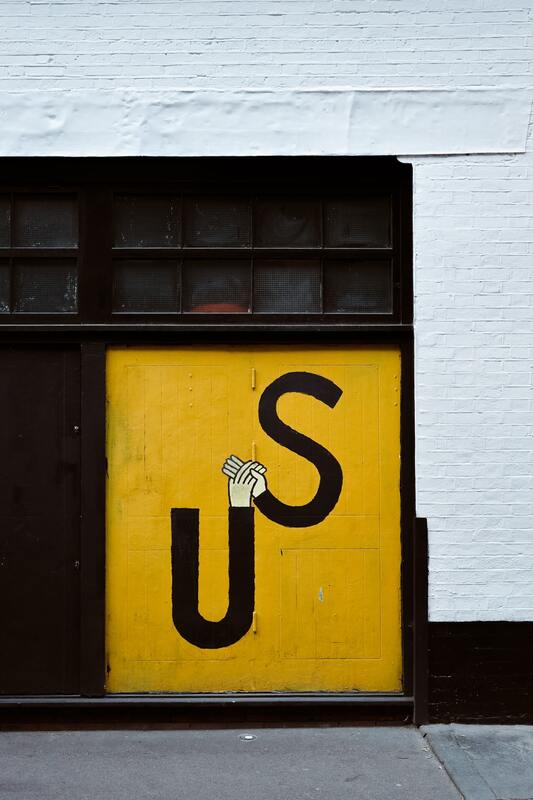
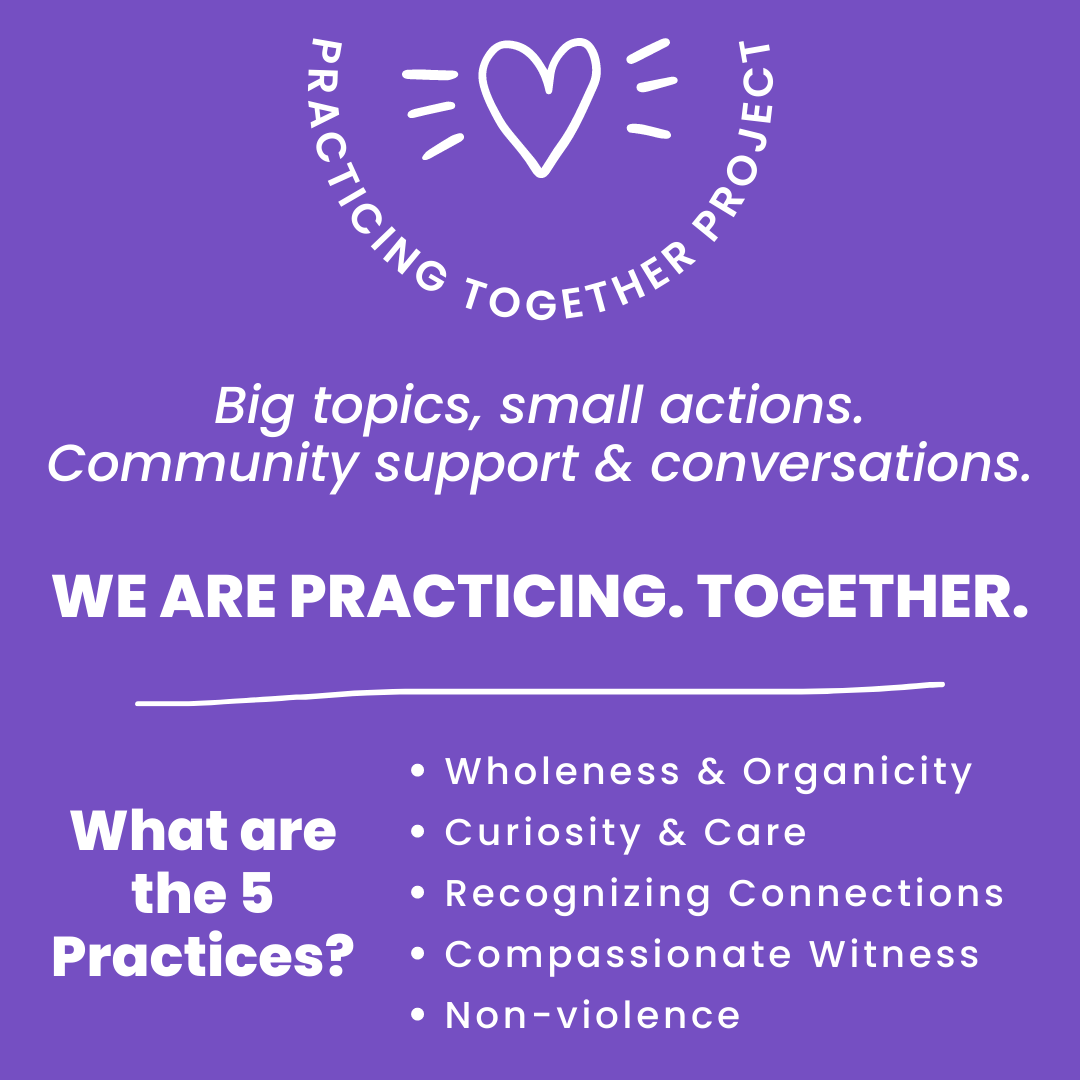
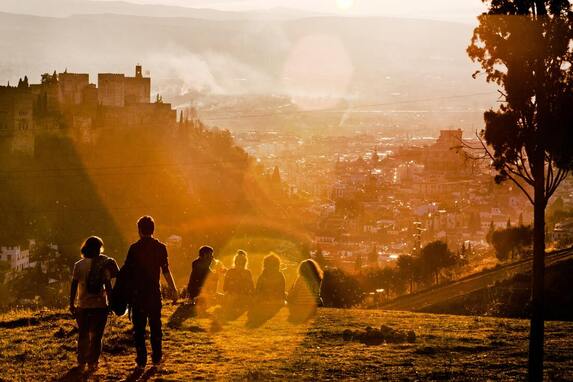
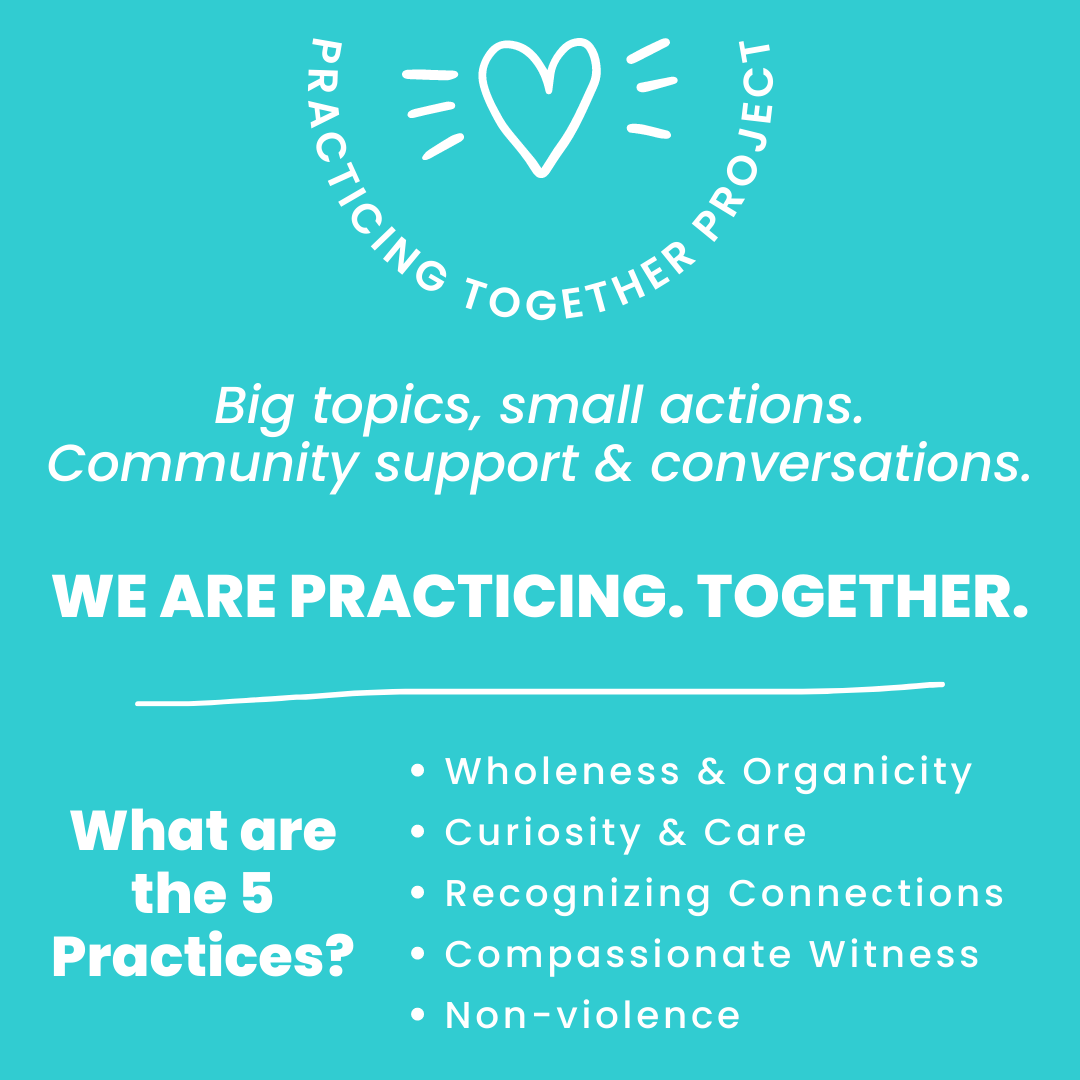
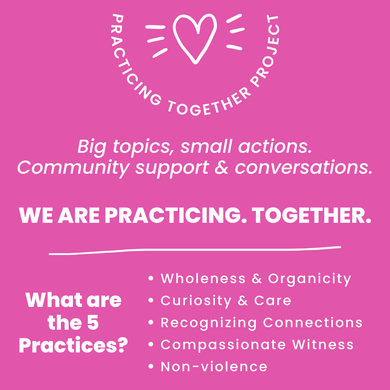
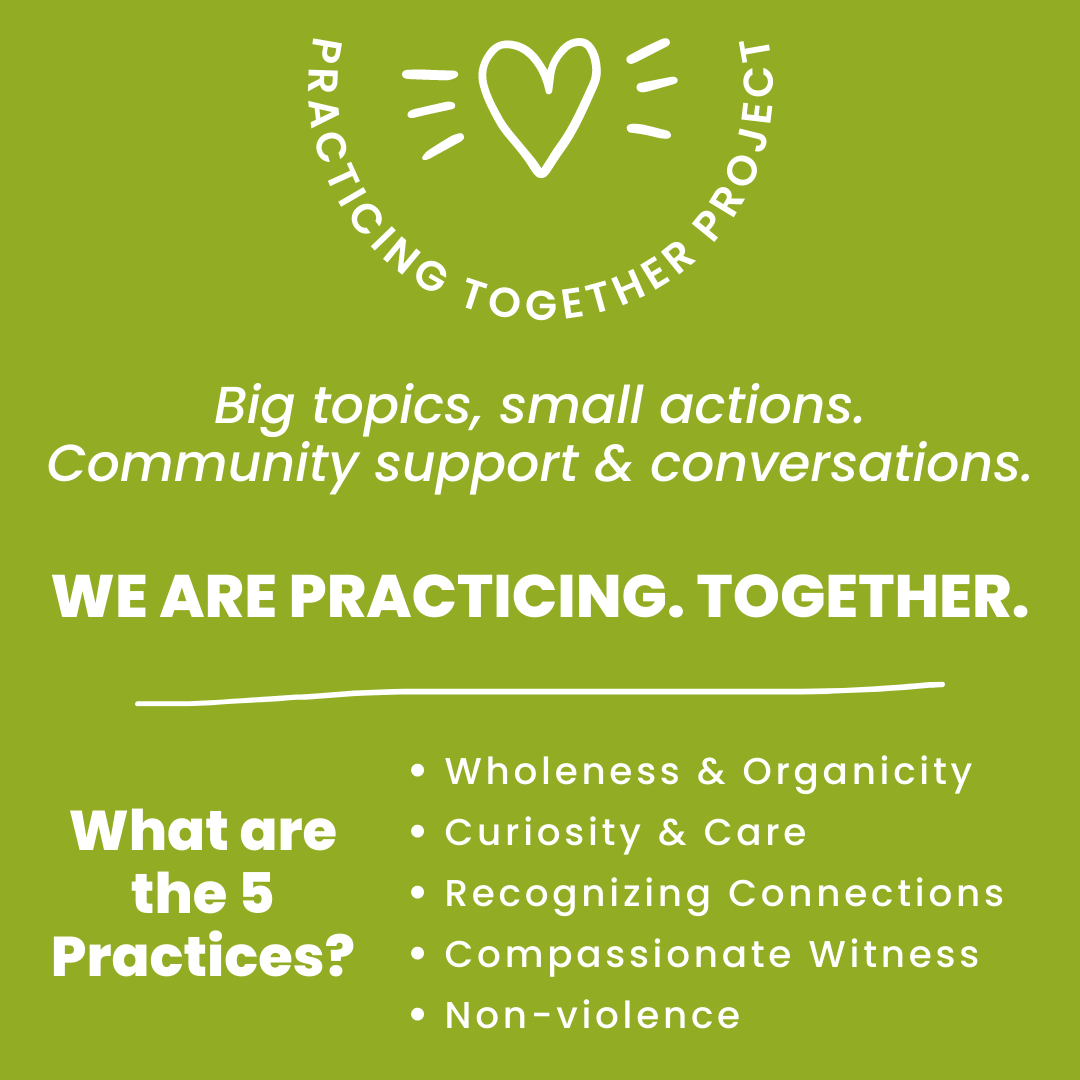
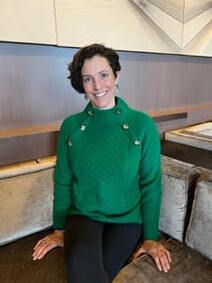
 RSS Feed
RSS Feed
